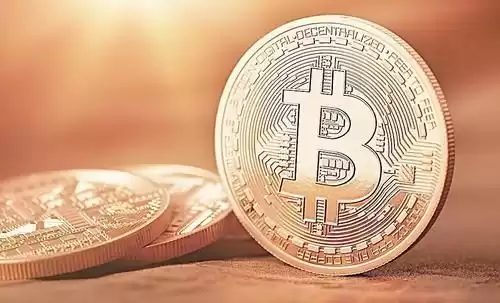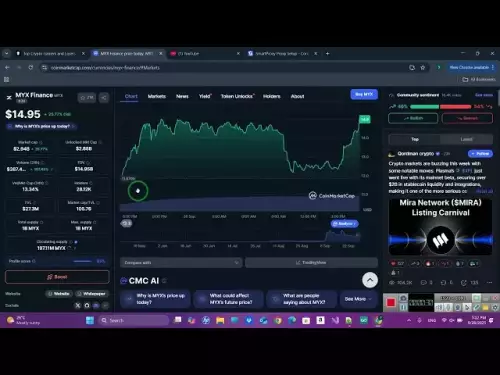-
 bitcoin
bitcoin $109547.008142 USD
0.04% -
 ethereum
ethereum $4011.838726 USD
-0.05% -
 tether
tether $1.000402 USD
-0.01% -
 xrp
xrp $2.798606 USD
0.88% -
 bnb
bnb $970.877944 USD
1.39% -
 solana
solana $202.237275 USD
-0.95% -
 usd-coin
usd-coin $0.999673 USD
0.00% -
 dogecoin
dogecoin $0.229294 USD
-1.15% -
 tron
tron $0.336370 USD
-0.45% -
 cardano
cardano $0.777260 USD
-1.66% -
 hyperliquid
hyperliquid $45.503019 USD
1.73% -
 ethena-usde
ethena-usde $1.000362 USD
0.01% -
 chainlink
chainlink $20.785303 USD
-1.10% -
 avalanche
avalanche $28.755822 USD
-0.11% -
 stellar
stellar $0.358303 USD
-0.48%
What Is a Bitcoin Transaction Fee?
Bitcoin transaction fees incentivize miners and ensure smooth network functioning by compensating them for verifying and adding transactions to the publicly distributed ledger.
Nov 06, 2024 at 10:15 pm

Within the realm of digital currencies, transaction fees play a crucial role. In the context of Bitcoin, a decentralized and peer-to-peer cryptocurrency, transaction fees serve as an integral component of the network's functioning, ensuring the smooth and efficient processing of transactions. Understanding the nature and significance of Bitcoin transaction fees is paramount for users engaging in cryptocurrency transactions.
1. The Essence of Bitcoin Transaction FeesBitcoin transaction fees, in essence, represent a modest sum of Bitcoin (BTC) paid to miners as compensation for their efforts in verifying and adding transactions to the Bitcoin blockchain, a publicly distributed ledger that records all transactions. These fees incentivize miners to prioritize and process transactions promptly, ensuring the network's stability and security.
2. Determinants of Transaction FeesThe magnitude of Bitcoin transaction fees is influenced by a confluence of factors:
- Network Traffic: During periods of high network traffic, when numerous transactions compete for inclusion in the next block, transaction fees tend to rise as users seek to expedite the processing of their transactions.
- Transaction Size: Larger transactions, involving sizable amounts of Bitcoin, typically incur higher fees as they demand more computational effort from miners to process.
- Priority Level: Users can opt to pay higher fees to prioritize their transactions, increasing the likelihood of their swift confirmation.
Several methods exist for estimating the appropriate transaction fee to ensure timely processing:
- Manual Estimation: Users can manually adjust the transaction fee based on network conditions and their desired confirmation time.
- Dynamic Fee Calculation: Certain Bitcoin wallets incorporate algorithms that automatically calculate the optimal transaction fee based on real-time network data.
- Third-Party Services: Online services and mobile applications provide estimates of appropriate transaction fees based on historical data and current network activity.
Transaction fees can impact users in several ways:
- Cost: Transaction fees represent a direct expense for users, reducing the net amount of Bitcoin received or sent.
- Confirmation Time: Higher fees prioritize transactions, leading to faster confirmation times, while lower fees may result in longer waiting periods.
- User Experience: Seamless and efficient transaction processing enhances the user experience, while excessive fees or lengthy confirmation times can be frustrating.
Optimizing transaction fees involves a balance between minimizing costs and ensuring timely processing:
- Timing: Conducting transactions during off-peak hours, when network traffic is lower, can result in reduced fees.
- Batching Transactions: Combining multiple smaller transactions into a single larger transaction can reduce overall fees.
- Fee Bumping: Increasing the transaction fee after initial submission can expedite confirmation if the network is congested.
Transaction fees play a multifaceted role in enhancing network security:
- Spam Prevention: Non-zero transaction fees discourage malicious actors from flooding the network with spam or low-value transactions.
- Network Stability: Fees incentivize miners to maintain the network's integrity and process transactions efficiently.
- Decentralization: Transaction fees contribute to the network's decentralization by compensating miners and ensuring the continued operation of the blockchain.
Disclaimer:info@kdj.com
The information provided is not trading advice. kdj.com does not assume any responsibility for any investments made based on the information provided in this article. Cryptocurrencies are highly volatile and it is highly recommended that you invest with caution after thorough research!
If you believe that the content used on this website infringes your copyright, please contact us immediately (info@kdj.com) and we will delete it promptly.
- BTC Price Wobbles as Bitcoin ETFs See Inflows, Ethereum ETFs Bleed: What's the Deal?
- 2025-09-28 22:25:17
- Bitcoin Price Eyes Reversal? Analyst Weighs In
- 2025-09-28 22:25:17
- Shiba Inu Price Predictions: Navigating the Meme Coin Maze
- 2025-09-28 22:30:02
- GOAT Network's $GOATED: Navigating the Post-Listing Plunge
- 2025-09-28 22:30:02
- Riding the Altcoin Wave: Can Mutuum Finance Turn Pennies into Dollars Before Bitcoin's Peak?
- 2025-09-28 22:30:02
- Tapzi: Skill-to-Earn Revolution in Web3 Gaming
- 2025-09-28 22:30:13
Related knowledge

How to purchase Aragon (ANT)?
Aug 09,2025 at 11:56pm
Understanding Aragon (ANT) and Its PurposeAragon (ANT) is a decentralized governance token that powers the Aragon Network, a platform built on the Eth...

Where to trade Band Protocol (BAND)?
Aug 10,2025 at 11:36pm
Understanding the Role of Private Keys in Cryptocurrency WalletsIn the world of cryptocurrency, a private key is one of the most critical components o...

What is the most secure way to buy Ocean Protocol (OCEAN)?
Aug 10,2025 at 01:01pm
Understanding Ocean Protocol (OCEAN) and Its EcosystemOcean Protocol (OCEAN) is a decentralized data exchange platform built on blockchain technology,...

How to invest in Kyber Network Crystal v2 (KNC)?
Aug 12,2025 at 05:21pm
Understanding Kyber Network Crystal v2 (KNC)Kyber Network is a decentralized liquidity hub built on the Ethereum blockchain that enables instant token...

Where can I buy UMA (UMA)?
Aug 07,2025 at 06:42pm
Understanding UMA and Its Role in Decentralized FinanceUMA (Universal Market Access) is an Ethereum-based decentralized finance (DeFi) protocol design...

How to sell my Ren (REN) tokens?
Aug 13,2025 at 11:35am
Understanding REN Tokens and Their Role in Decentralized FinanceREN is an ERC-20 token that powers the Ren protocol, a decentralized interoperability ...

How to purchase Aragon (ANT)?
Aug 09,2025 at 11:56pm
Understanding Aragon (ANT) and Its PurposeAragon (ANT) is a decentralized governance token that powers the Aragon Network, a platform built on the Eth...

Where to trade Band Protocol (BAND)?
Aug 10,2025 at 11:36pm
Understanding the Role of Private Keys in Cryptocurrency WalletsIn the world of cryptocurrency, a private key is one of the most critical components o...

What is the most secure way to buy Ocean Protocol (OCEAN)?
Aug 10,2025 at 01:01pm
Understanding Ocean Protocol (OCEAN) and Its EcosystemOcean Protocol (OCEAN) is a decentralized data exchange platform built on blockchain technology,...

How to invest in Kyber Network Crystal v2 (KNC)?
Aug 12,2025 at 05:21pm
Understanding Kyber Network Crystal v2 (KNC)Kyber Network is a decentralized liquidity hub built on the Ethereum blockchain that enables instant token...

Where can I buy UMA (UMA)?
Aug 07,2025 at 06:42pm
Understanding UMA and Its Role in Decentralized FinanceUMA (Universal Market Access) is an Ethereum-based decentralized finance (DeFi) protocol design...

How to sell my Ren (REN) tokens?
Aug 13,2025 at 11:35am
Understanding REN Tokens and Their Role in Decentralized FinanceREN is an ERC-20 token that powers the Ren protocol, a decentralized interoperability ...
See all articles









































































